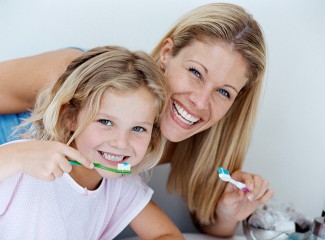Updated on 18th March 2022
According to the National Health Service, hospitals admit nearly 500 children with rotting teeth every week.
 Children as young as four years old find themselves needing teeth fillings due to their consumption of fruit juices and fizzy drinks. These sugar-filled treats are the main reason British children need hospital treatment when young. Most cases mean removing between 4 and 8 of the youngsters’ baby teeth; severe cases mean extracting 20.
Children as young as four years old find themselves needing teeth fillings due to their consumption of fruit juices and fizzy drinks. These sugar-filled treats are the main reason British children need hospital treatment when young. Most cases mean removing between 4 and 8 of the youngsters’ baby teeth; severe cases mean extracting 20.
Sugar, fizzy drinks and every child’s health
Sugar is a natural addition in foods such as milk and fruits. A number of food products contain more sugar than recommended in order to make them sweeter and therefore tastier for kids. These include the following:
- Cakes
- Sweets
- Chocolate
- Fruit juices
- Soft drinks
Children ages 4-18 receive 15% of their sugar intake from added sugar. A large portion of this intake comes from fizzy drinks and fruit juices. Added sugar should not make up more than the recommended 5% of daily energy intake for children aged 2 and above.
While fruit juices also bear good nutrition, its high sugar causes dental damage similar to fizzy drinks. Children who take more than the recommended sugar levels are also at risk of having diabetes and obesity.
How sugar damages teeth
Dentists are constantly reminding parents and children about the adverse effects of too much sugar consumption. According to the British Dental Association, tooth decay has become the main reason for hospital admissions in young children, while 170 children and teenagers in England undergo tooth extractions under general anaesthetic in English hospitals daily. Such extractions have increased by nearly a fifth (18%) in the past decade, at a cost to the NHS of £205m.
Sugar can be in things you hadn’t thought of. Even if you give your children fruit juices believing this leads to healthier teeth, for example, you’re inadvertently making the situation worse. Orange juice contains acid, which softens the enamel and encourages teeth sensitivity.
Essentially, your mouth has ‘good’ and ‘bad’ bacteria. The harmful kind in plaque feed on sugar and carbs, or starches, and create acids which can convert into bacterial infections when they’re left on the teeth. Unfortunately, the harm these can do is twofold. Firstly, they can damage the shiny outer layer of tooth (the enamel). Secondly if these bacterial infections are not treated, they turn into cavities, also called tooth decay or caries, an infectious disease which reach the tooth’s deeper layers and create a hole. Not only is this potentially quite painful and the damage is permanent, but it can ultimately lead to the loss of the tooth. And it’s a myth that children only have this problem as they have ‘soft’ teeth (they don’t).
Equally, sometimes cavities occur with no symptoms, so only a dentist will identify them during a routine check-up. Finally, it’s not just the bacteria which can lead to cavities, but frequent snacking, having too many sugary drinks and not cleaning teeth properly or often enough.
What parents can do
The good news is that there is quite a lot that parents can do:
- Manage children’s sugar intake, especially from soft drinks and fruit juices. Do some healthy swaps, including sugar-free alternatives such as water or skimmed milk. Try to limit fruit juices, which are high in sugar, to one small daily glass. Have juice or squashes with meals rather than at every snack time to reduce intake.
- You will already know that thorough brushing of teeth with fluoride toothpaste is one of the most effective ways of preventing tooth decay. Fluoride protects teeth against decay and helps make developing enamel stronger while also slowing down plaque’s production of bacteria in acid. It’s measured in ppm or parts per million, and you can see the figure on the side of the tube; look for levels of between 1,350 and 1,500ppm for adults. According to the NHS, children younger than three should have a smear of toothpaste containing at least 1,000ppm fluoride; for those aged between three and six, it should be a pea-sized amount of toothpaste, with over 1,000ppm fluoride.
- In terms of diet, limit children’s carbohydrate-based snacks, steer clear of sugar at bedtime, when saliva flow reduces, and try to encourage less frequent snacking. Where kids do eat between meals, try to think of healthy replacements such as fresh fruit, carrot sticks, nuts or yoghurt. Specifically, sticky sweets should only be given to kids as an occasional treat.
- Children need to brush their teeth twice daily, and beyond the age of three arguably more often, for a good two minutes. We have more information on training your child to become a good little brusher. From the age of three, the NHS advises that kids brush their own teeth, with parents supervising until around the age of seven.
- Don’t forget to teach your little ones to floss each day as well – and you can start when your child is as young as four. Try and make it (and brushing) fun with music, joining in flossing or brushing yourself, or devising a reward system. Make it a family event! Equally, child-friendly floss is available which is ideal for sensitive gums or smaller mouths. From around 10, children should be flossing independently.
- Other tips for preventing tooth decay from sugar in kids include:
- Choosing sugar-free medicines
- Cutting back on fizzy drinks (even the sugar-free ones are acidic)
- Not giving sweets as rewards for anything
- Fizzy drinks, even fizzy water, remain the biggest single source of sugar in youngsters aged 11-18
- Look out for ‘hidden sugars’ in pure fruit juices and dried fruit
- If your child’s nursery offers supervised brushing sessions, make the most of them.
What are the signs of tooth decay in my child?
Among the indications of tooth decay are either ongoing or an occasional sharp pain with no obvious cause. There are a couple of other things to look out for as well:
- Spots on the teeth – these may be grey, brown or black in colour
- Highly sensitive teeth – a feeling of pain or tenderness when eating something hot, cold or sweet
There won’t be any symptoms initially. But as the cavity gets bigger, it can reach the dentine (below the enamel), making the tooth more sensitive. As the decay works its way towards the dental pulp (soft tissue in the middle of the tooth), toothache is likely to result.
Is milk good for children’s teeth?
Lactose in cow’s milk is actually a sugar, and can therefore put teeth at risk of decay. The risk goes up at night as we produce less protective saliva. If your child needs a drink and can’t sleep, give them water instead.
However, milk is rich in calcium and phosphorus, minerals which repair damage to teeth. It also stimulates saliva production, is pH-neutral so neutralises the acid in some products, so it’s good to consume it after a snack or meal.
But, ultimately, you should only really consume milk as one part of a balanced diet and a mouth-heathy lifestyle.
What vitamins are good for children’s teeth?
- Vitamin D boosts bone density and is great for strong teeth and bones. It can be absorbed via direct sunlight, but is also found in fatty fish and some mushrooms.
- Vitamin C strengthens gums and the mouth’s soft tissue to help fight gingivitis and teeth coming loose. Citrus fruits obviously burst with this vitamin – but are also highly acidic. Try leafy green vegetables and potatoes instead as good sources of Vitamin C.
- Vitamin K helps your body produce the protein that supports bone strength, and blocks substances which break down bone. You’ll find it in many leafy greens from kale and broccoli to kale, parsley and Brussel sprouts.
Finally, minerals such as phosphorus (found in seafood, soya beans, lentils and pumpkin seeds) and iron (seafood, eggs and leafy greens) also promote oral health.
How can you reverse tooth decay in toddlers?
Unfortunately, you can’t reverse toddler (or indeed adult) cavities. But they can be treated by your dentist, to avoid more damage to the rest of the tooth. Good oral hygiene and a healthy diet (especially where sugary drinks are concerned) are key to preventing caries – and, of course, prevention is always the best policy.
How will a dentist treat toddler tooth decay?
A dentist may spot a new cavity developing during a check-up or on an X-ray. Extensive decay which has reached the nerve in the centre of the tooth will need extraction or root canal treatment. Less advanced decay can be treated with a filling. The dentist will remove the infected material and fill the cavity with a filling or crown.
From what age should I take my child to the dentist?
NHS dental care is free. Take your children from when their milk teeth first start to appear. This will help them get to know the dentist and become familiar with the environment. Make the visit positive and fun, let them watch as you have your own appointment, and stress that regular check-ups are nothing to worry about. Make the most of any advice on oral health and hygiene your dentist offers.
Regular dental appointments are essential in dental care for children. Bounty Road Dental provides preventive dental care for children of all ages. Get in touch with us now for more information on our children’s teeth services.
 Late nights and too much alcohol, caffeine and fizzy drinks that help you stay awake could be ruining your teeth. This, along with the round-the-clock party attitude of young people and their tendency to forego proper dental care, should definitely be a concern not just for the students, but their families, as well.
Late nights and too much alcohol, caffeine and fizzy drinks that help you stay awake could be ruining your teeth. This, along with the round-the-clock party attitude of young people and their tendency to forego proper dental care, should definitely be a concern not just for the students, but their families, as well.



